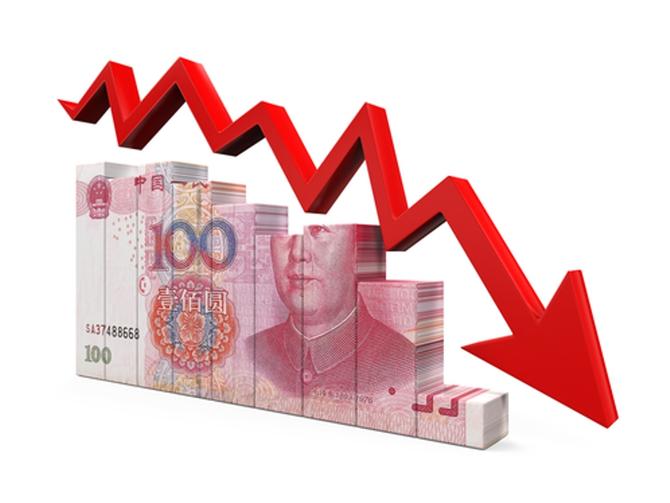
Why the PBOC is dead wrong on devaluating the Yuan
After a few years of letting the Yuan slide to a more normal level, the PBOC has decided to completely reverse course and set a path to devalue the Yuan since late last year.
Why the sudden change in monetary policy?
As with most economic and financial decisions, this one seems to be yet another “reactionary” one. We saw such reactionary measures with all the stock market madness which occurred in the summer of 2015. Reactionary measures tend not to work; and we have definitely seen proof of this with the stock market debacle. But back to the question of “why?”. It would seem that the intent to devalue the Yuan is a traditional one; namely, to devalue the currency would, in theory, mean that exports would become “cheaper” to other countries and thus China could export more goods which would help its stagnating economy.
The conundrum, however, is that this is a flawed and unrealistic expectation. Let me explain. The world now is so economically and financially integrated. It’s not just China that is slowing down; everywhere is, and most particularly in Western Europe and the United States. The US is China’s biggest trading partner. But the US economy is now experiencing a very severe recession, or depression many would say. The US Consumer – the main driver of the world’s largest economy – is broke! With almost 95 million out of the workforce and over 40% of the country’s citizens receiving food stamps and other government aid, do you think that Americans actually have a lot of disposable income to purchase its goods? Just look at recent store closings for many retail chains such as Macy’s, JC Penny, and even Wal Mart. Americans simply won’t be buying more goods from China because they are broke and can barely pay their month-to-month bills!
If people aren’t buying goods at Wal Mart (80% of which are made in China) do you really think that a devaluation of the Yuan against the US dollar will make a difference?
In my opinion, China and the PBOC should be pursuing the opposite policy which would be a much more beneficial one.
That is, they should be letting the Yuan strengthen against other currencies as is the natural tendency anyhow. China’s currency was just admitted to the IMF’s SDR basket of currencies. And during his visit to the US last year, President Xi mentioned that although there was a recent slowdown in the appreciation of the Yuan, China would indeed let it “float” soon and be priced according to market forces.
For China to keep the Yuan devalued it needs to burn a lot of its FX Currency Reserves (which are currently at just over 3.5 Trillion US dollars). In fact, they have just spent nearly US$500 million in the last several weeks just to debase the Yuan. There is also the Offshore Yuan that they need to debase in order to close the gap between CNY and CNH which is also extremely costly not to mention an unwinnable fight against the Hedge Fund community.
Why choose to let the Yuan strengthen instead of weakening it?
A few reasons:
1) This would be in line with what they’ve been telling the world about letting its currency free float.
2) The Yuan could rival or even replace the US dollar as the trade currency of choice. This could further increase China’s power and influence in the world.
3) The currency is currently grossly undervalued. By how much? The Chinese Yuan is 42% undervalued according to the Big Mac Index (see http://bigmacindex.org/2015-big-mac-index.html).
4) Most importantly: China is transitioning into a Consumer-based Economy while waning its out-of-date and no-longer-realistic Export-Led Model. What this means is that what will drive the Chinese economy in the next several decades will be consumers buying goods. If the Yuan is stronger, Chinese consumers can get more purchasing power – especially when buying foreign made goods. Chinese consumers can also strongly benefit from a stronger Yuan when travelling abroad. With a strong Yuan, vacations and shopping will become a lot cheaper. Moreover, Chinese love gold. And a stronger Yuan could mean that shoppers could by and accumulate gold more cheaply.
In conclusion, I think that the PBOC trying to reverse course and force its way back is a completely flawed policy to undertake at this particular point in time given the economic circumstances and other reasons stated above. Unfortunately, I (and most of you) will not hold my breath for a shift in policy. China could be in a position to let the Yuan strengthen rather than join the club of other fiat currencies which are racing towards the bottom. But hey, such a “reactionary” measure seems to fit with what they know rather than taking a “proactive” one in which they could become the leader. Time will tell.
Measured with U.S dollars, the current Chinese urban residents' income has increased about twenty times compared to that in 1985 or so.
besides international market calling a depreciation of RMB, there are few reasons that it is unwise for china to keep rmb strong.
1> 25% gdp in china is export-related.
2> china has kept rmb strong in past few years, while its competitors' currencies have weakened. a major erosion of its competitiveness
3> one road/one belt inititives means exporting major high end mechanical/electrical equipments, a weaker currency helps winning the deals.
4> as long as rmb is kept in a reasonable range, it does not prevent it from being a trade settlement currency.
keeping currency strong has been a dangerous business proposition. japanese yen was strenghened from 300 to 100 range after that deadly plaza accord, almost 20 year recession followed even though their purchasing power increased enormously. this is a liquidity trap china should avoid. us politicians have called a strengthening rmb as well for years.







Comment